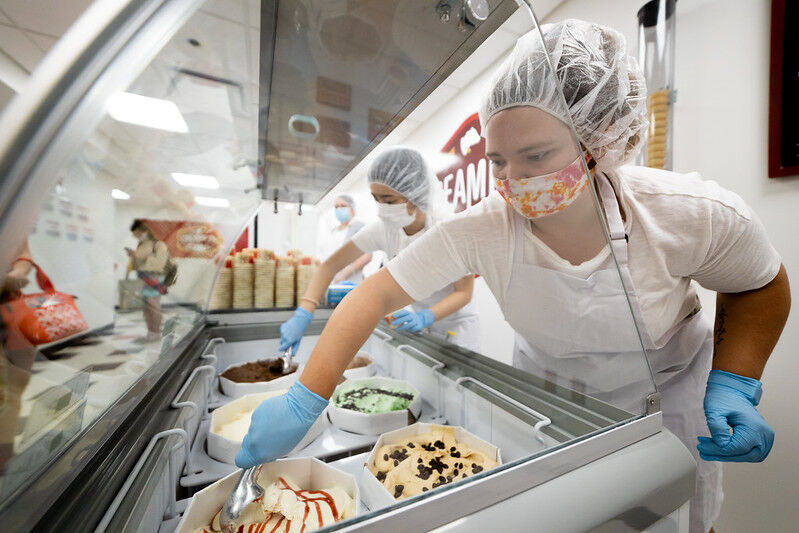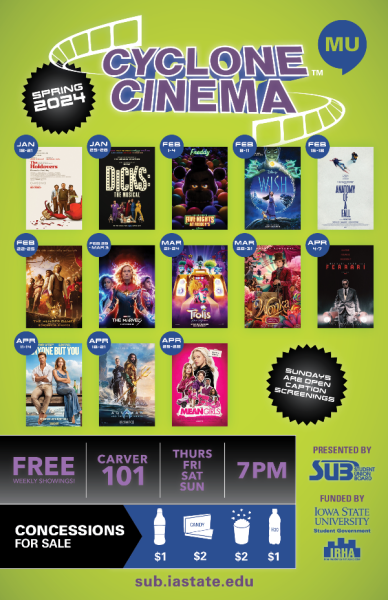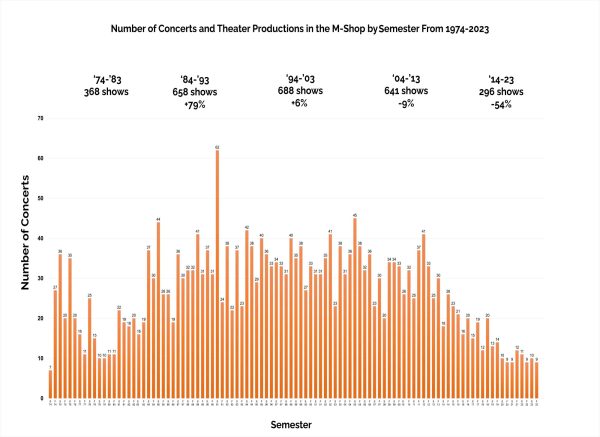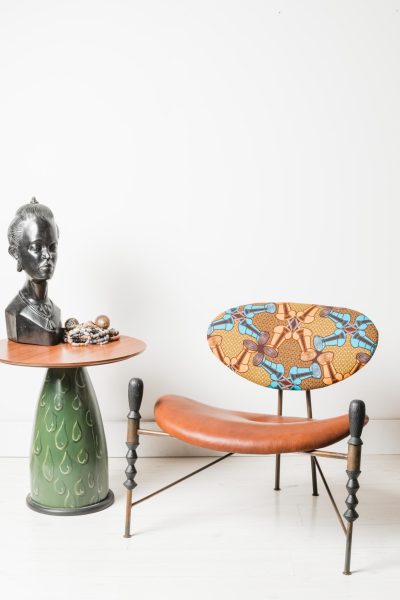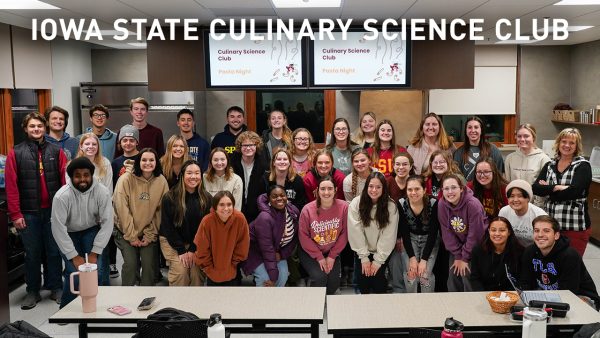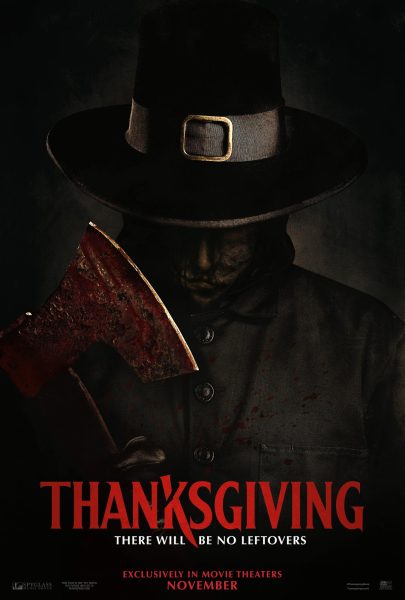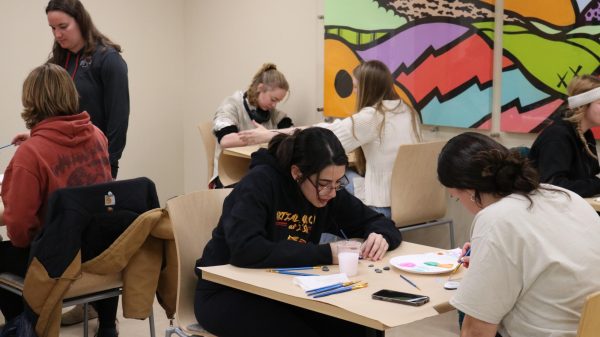2020 school year in review
December 17, 2020
Inhale. Exhale. Unclench your jaw. Roll your neck to one side, then the other. Repeat as needed. Now you may continue reading.
2020. A dumpster fire of a year for some; for others, a chance for change, renewal and rejuvenation. Politics. Celebrity deaths and pregnancies. The Black Lives Matter movement. The presence of the novel coronavirus.
As the world counted down from 10 on Dec. 31, 2019, the usual excitement and anticipation that comes with a new year, the chance to start fresh seemed to be similar to the length of a free trial.
As much as we would like to cancel our subscription to the year 2020 and skip ahead to the year 2021, the issues that arose and demand attention are not going to disappear with the presence of a new date.
Students across the country have had to learn to adjust to virtual learning and alter their lifestyles to allow for this shift within their education. Face masks have become a necessity on campus, along with student IDs and laptop chargers. Social distancing stickers and signs reminding occupants to wear their masks donned the walls in university buildings alongside “Welcome Back!” banners.
August
Iowa State students returned to campus and began the fall semester Aug. 17 after being sent home in mid-March for what was intended to be an elongated spring break, but turned into a five-monthlong period full of whipped coffee, watching “Tiger King” and embroidering as well as a new awareness of racial injustice across America and a newfound appreciation for the presence of others, which we had been without for so long.
When classes resumed in mid-August, the usual sports and activities that came with it were still up in the air, as it turned crispier and the leaves changed to match university colors. The lack of students on campus was evident this semester, as COVID-19 cases rose and a majority of classes were hosted online.
The Iowa State Creamery had its grand opening Aug. 21, four months after the initial grand opening date was supposed to take place.
Planning for the ISU Creamery began in 2013, when Stephanie Clark, food science and human nutrition professor, realized there was a gap in her teaching because the campus lacked a creamery.
Having been enrolled and employed at universities that have creameries, Clark, whose courses have an emphasis on dairy nutrition, the thought of an on-campus creamery at Iowa State to use as a teaching tool inspired Clark to start the planning process.
ISU Creamery program coordinator Sarah Canova anticipates more foot traffic in the future when more students are on campus than in the fall 2020 semester.
“We are assuming we’re going to have a lot more foot traffic in the store hopefully next fall, when vaccines are out and campus is back to normal and classes are back in person,” Canova said. “A lot of the community members are kind of staying away because campus is a hot spot. Maybe they don’t feel as safe coming. We do have hope for more sales come next fall.”
The lack of on-campus presence means fewer students, faculty, staff and community members out and about to view advertising highlighting the ISU Creamery, but staff took it into their own hands to be engaged with audiences on social media.
“I have 10 student employees working for the creamery, and being students they’re in tune with students,” Canova said. “The girls came to me and said, ‘Sarah, we need an Instagram page, because college kids like Instagram.’
“They’re the ones promoting the creamery,” Canova said. “Just to highlight the team effort we have with the students, they really do make decisions for the creamery and they know what their fellow students want and how to get them to come into the store.”
Within the past three months, the creamery has sold more than 3,700 scoops of flavors unique to the creamery and directly related to Iowa State, such as Marston Mash, Campanile Kiss and Two Swans. The creamery offers curbside pickup for those more comfortable with that method and sells quarts and to-go eight-ounce packages of ice cream in addition to classic cones and bowls.
September
After two weeks on campus, record COVID-19 numbers were reported as Iowa college cities such as Ames and Iowa City were reportedly ranked top of the list in terms of increasing positive tests per capita, according to The New York Times.
In order to meet demands for increased testing, Iowa State offered multiple testing sites at Thielen Health Center and within Hilton Coliseum. Administration noticed the impact large gatherings and get-togethers held before the school year started were now having on those who were on campus.
Freshmen were starting to become more acclimated to campus life, or what little there was left of it. A majority of student clubs and organizations operated virtually, over Zoom or Webex, and left students itching for any sense of community they could form.
Caroline Crisp, a junior majoring in mechanical engineering, serves as a community adviser (CA) in Willow Hall and strives to emulate the experiences she had within the dorms two years ago to the residents on her floor now, although it may look a little bit different.
“This is my first year being a CA, so I was coming into the role not really knowing what this role was going to look like in comparison to what it’s been in the past,” Crisp said.
Only having one lab course on campus allowed Crisp to be more present within her role as a CA, as well as roles held within extracurricular organizations, which served as one of her silver linings this past semester.
“This semester, with [classes] being online, there was a little bit of a convenience aspect, and as silly as it sounds, not having to go on campus, even though I really miss it, that cut down a lot of travel time for me and a lot of transitioning between classes, so I really felt like I was able to put my energy into everything that I was involved in,” Crisp said.
Having an intensive course load her freshman and sophomore years allowed Crisp to take a breather this semester.
“These past two years, I put my heart and soul into trying to get a decent GPA so then during my second two years I was really able to focus on my involvement more,” Crisp said. “And I think that ended up paying off in my favor, just because it was very refreshing and rewarding to put more time and energy into those things.”
In the middle of September, changes to the 2021 spring semester were announced and included the removal of spring break. Instead, Winter Break was lengthened to two months rather than the five weeks students are typically given.
That made a five-week winter session available to students to give them the chance to take classes and get ahead in order to meet graduation requirements.
Spring semester classes are scheduled to be held in the same formats as the fall semester — in-person, online and hybrid methods.
October
“Brocktober” was in full swing, day-by-day decisions on Iowa State men’s and women’s basketball practices were being made and Halloween plans were being determined — abiding by or carelessly ignoring COVID-19 precautions.
Winning three out of the four football games played in October, Cyclone football fans were given a glimmer of hope on their television screens aside from daily coronavirus updates.
Relying on a day-to-day schedule with numerous COVID-19 tests determining whether games would be played on Saturday took large tolls on the members of the Iowa State University Cyclone Football Varsity Marching Band.
Alanna Maxwell, a senior studying kinesiology and health and one of three drum majors for the marching band, highlighted the flexibility members needed to exercise throughout this unpredictable season.
Maxwell remembers hearing updates as the threat of COVID-19 became more pressing in March, as she and the band were in Kansas City, Missouri, to play at the Big 12 Men’s Basketball Championship. As the tournament continued, updates went from limited amounts of fans within the stadium to family members only, then to no bands being able to perform after the first day of the tournament, and that eventually turned into the cancellation of the entire event.
“Wait a second, this is getting kind of real; this isn’t a meme anymore,” Maxwell thought. “This is actually starting to affect our day to day.”
Doubts of how long the pandemic would continue started to form, with plans to still hold band camp at the beginning of the school year. During the summer, the Iowa State marching band hosts clinics for high school students, and this year, one mess-up could cost them their entire season.
University marching bands across the country, such as the University of Connecticut, had already disbanded for the season, making Iowa State marching band members hesitant toward their own season.
“I remember we were all standing there, and [the director] said, ‘here’s the deal: If we mess this up, we don’t get to have band. The university is watching us like a hawk,’” Maxwell said.
Iowa State marching band was allowed far more flexibility schedulewise this semester, serving as one of Maxwell’s silver linings. Compared to last year, depending on the game start time, marching band members had to report to the stadium as early as 4 a.m. This season, depending on the game start time, members didn’t have to arrive until about 11 a.m.
Thankful for extra hours of sleep, marching band members also had to deal with the brunt of unpredictable factors that came with relying on the football team’s schedule, which frequently changed due to new protocols and potential positive tests.
“Compared to this year, where we’re like ‘We don’t really know what’s going on. We told you this set of instructions yesterday, but today, it’s entirely different so forget what we told you yesterday and it will probably be different tomorrow too.’ We’re just thankful to have the little that we do have, as long as we get a semblance of getting to do it,” Maxwell said.
Traditions within the marching band program also had to be sacrificed this season, such as senior send-offs, pregame performances and “Band Extravaganza.” However, being able to perform in person at Jack Trice on game days was a tradition Iowa State marching band members were grateful could continue.
“There are things that we do every single year,” Maxwell said. “The pregame show that we do has not been changed for probably 10 years.
“I have had friends who have marched in the same exact spot on the field, just by chance, multiple years in a row,” Maxwell said. “Nothing has changed about it. In previous years, a misunderstanding, everyone’s up in arms, everyone’s freaking out. It makes it impossible to do anything slightly different in these things.”
Meanwhile, Halloween brought with it record increases of positive coronavirus cases, causing administrators to further emphasize on-campus precautions and resources available to students, such as multiple testing centers.
November
The long-awaited 2020 presidential election brought with it feelings of hesitancy and hope, as America was divided yet again.
Voting efforts surged on social media, with celebrities and influencers urging their followers to register to vote, vote early and ensure they cast their ballot. The nation seemed to be looking at younger generations to help secure a presidential candidate, as Generation Z and millennials had record turnouts when it came to polling places and mail-in ballots.
When announced that President-elect Joe Biden would be the 46th president of the United States, cheers heard around the world were echoing as most Americans took a sigh of relief.
“I really feel like 2020 made me more socially aware of a lot more of what’s going on and I’m thankful for that,” Crisp said. “I think with the pandemic too, it made me a lot more appreciative of different things and I felt like it was just my duty too, to be more of an informed citizen.”
In order to finish the semester before Thanksgiving, finals began Nov. 21, a Saturday, and concluded Nov. 25, the Wednesday before Thanksgiving. The decision to eliminate the period in between Thanksgiving and Winter Break comes from not wanting an increase and rapid spread in cases during those couple of weeks separating breaks.
One week after winning the position of Student Government president, Morgan Fritz was sent home, along with her peers, to isolate amid the pandemic. Filled with excitement and anticipation ahead of the semester like no other, Fritz was ready to get back to campus and get to work.
Putting pandemic protocols in place and learning how to lead an organization fully online were tasks no Student Government president had to complete before.
“I think that we did have a lot of goals coming into this year of things that we wanted to accomplish, and those projects were well on their way. In addition to that, we also had to adapt and figure out how to deal with COVID-19 and all the other issues that come up as the year goes on,” Fritz said. “I think that has made us better leaders. I think it has made Student Government a better organization.”
Fritz, a senior studying political science, is awaiting the day when normalcy returns. For now, online interactions will have to suffice.
“I’m looking forward to being back into the full swing of things,” Fritz said. “But I’m also curious to see what stays after all of this is over. I know a lot of progress has been made in certain areas like technology. I’m curious to see how much of that stays and impacts our culture.”
However, when returning to normalcy, Fritz wants to bring with it just one thing.
“Work from home fashion is amazing,” Fritz said. “Just putting a nice shirt on and wearing sweatpants, I think that should be here to stay.”

